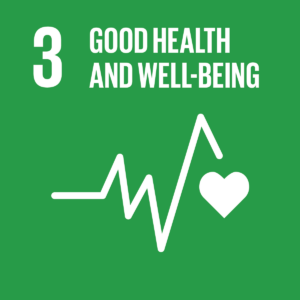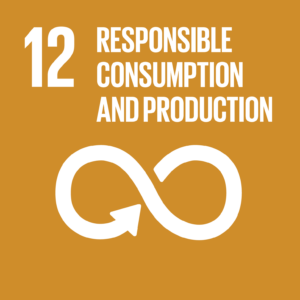 The Future Roadmap for Food & Beverage: Evolutions and Challenges for the Coming Years
The Future Roadmap for Food & Beverage: Evolutions and Challenges for the Coming Years
Introduction to the 8th Forum
The prestigious 8th Food & Beverage Forum, held from June 7-8, 2024, in the splendid setting of Bormio, served as a fundamental touchpoint for strategic discussions among the sector’s key players. This annual event, organized by The European House – Ambrosetti, attracted over 400 top executives from national and multinational groups and organizations operating in Italy. Valtellina, known for its gastronomic and tourism traditions, provided the ideal backdrop for delving into themes of sustainability, innovation, and growth in the agri-food sector.
Key Themes and Innovations
The 2024 edition focused on the strategic role of the agri-food supply chain for the country’s resilience and competitiveness, emphasizing nutrition, sports, health, and how these elements can contribute to Italy’s sustainable recovery in the coming years. The forum’s round tables and plenary sessions addressed critical topics such as:
Sustainability and Innovation in the Agri-Food Supply Chain:
- Food Sustainable Transition Index: Introduced as a new tool to measure the sustainability of Italian agri-food practices against European standards, helping companies identify areas for improvement and develop more sustainable strategies.
- Reducing Food Waste: Discussions centered on resource efficiency and eco-friendly farming practices were key components of the program.
Nutrition, Sports, and Health:
- Healthy Eating and Physical Activity: In-depth explorations of how a balanced diet can enhance athletic performance and overall well-being.
- Valtellina Model: Cited as an example of integration between high-quality food production, tourism promotion, and community well-being.
The Success of Made in Italy Agri-Food
In 2023, Italy achieved a historic record for agri-food exports, reaching €62.2 billion, with an annual growth rate of +6.4% from 2010 to 2023. Certified productions have been a driving force for the international projection of the Italian agri-food supply chain. With 890 certified products in 2022, Italy leads the European Union. This high level of quality is crucial for competitiveness and value creation, demonstrated by the fact that certified supply chains generated total revenues exceeding €20 billion in 2022, with wine as the leader in value generated, followed by cheese and meat products.
Challenges and Opportunities in the Sector
The Italian agri-food sector faces several challenges to maintain and enhance its competitiveness and sustainability. These challenges include:
- Energy Crisis and Raw Materials: Increasing costs necessitate tax credits for energy and gas and adoption of efficient, renewable technologies.
- Environmental Sustainability: Compliance with EU policies like “Farm to Fork” and Fit for 55 requires substantial greenhouse gas emissions reductions by 2030.
- Company Growth: Sector fragmentation limits competitiveness; 4.7% of firms generate 66.7% of turnover.
- Enhancing conditions for Italian firms, including increased tax credits for innovation and digitalization, is crucial for future growth and resilience
Policy Proposals for the Future
To ensure a prosperous future for the Italian agri-food sector, six policy proposals have been developed:
Firstly, support for food consumption and businesses involves implementing income support measures and temporarily reducing VAT on essential products. Secondly, strengthening company size by creating enabling conditions for growth includes encouraging mergers, acquisitions, and international expansion. Thirdly, promoting sustainability entails adopting sustainable practices and investing in technologies to reduce environmental impact across the supply chain. Additionally, encouraging innovation and digitalization aims to enhance productivity and efficiency through the adoption of innovative technologies and sustainable product development. Furthermore, export support initiatives aim to promote Made in Italy agri-food products globally, improving traceability and safety while facilitating market access. Lastly, investing in training and skills development seeks to enhance the technical and managerial capabilities of sector operators, ensuring readiness for dynamic market demands.
Conclusions
The Italian agri-food supply chain, renowned for its quality and tradition, stands as a fundamental pillar of the national economy and a global ambassador of Made in Italy. Addressing challenges with targeted and innovative strategies is essential to ensure the sector’s sustainability and competitiveness in the coming years. Key investments in sustainability, innovation, company growth, and export support are crucial for fostering a prosperous and resilient future for Italian Food & Beverage. Our participation in the event provided valuable opportunities for discussion and learning.
Role of Proaxxes
Proaxxes specializes in strategic consulting and promoting sustainability in the agri-food sector, fostering dialogue and collaborations among innovative companies. Notably, the Netherlands stands out as a leader in food and agri-tech innovation, known for sustainable agricultural practices such as advanced cultivation and efficient water use. These practices, emphasizing productivity alongside environmental stewardship, offer valuable lessons for Italy. Consequently, Italian companies interested in enhancing their efficiency and sustainability can draw insights from this comparison. Proaxxes remains committed to supporting the agri-food sector, offering specialized consultancy to enhance sustainability and seize market opportunities. Contact us!








